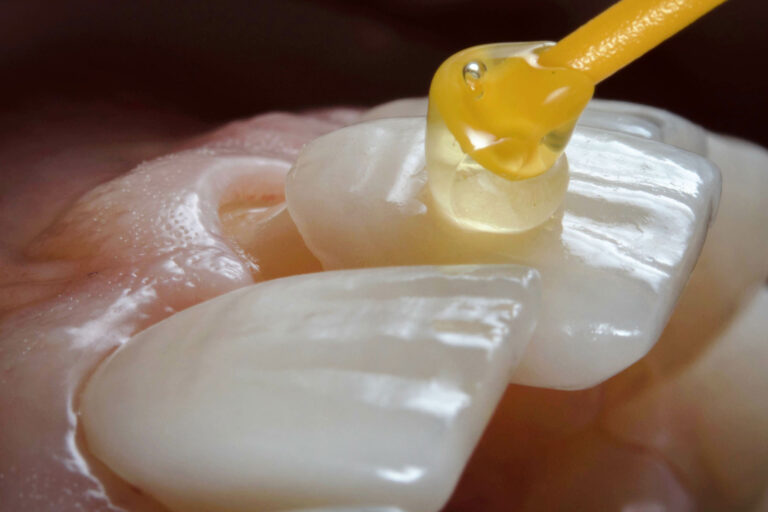
Dental veneers have become a popular choice in Singapore for individuals seeking to enhance the appearance of their smiles. But how long can you expect these veneers to last?
In this article, we delve into the durability of dental veneers, exploring the different types of veneers, the factors affecting their longevity and long-term maintenance tips.
What are dental veneers?
Dental veneers are wafer-thin shells made from porcelain or composite resin. They are designed to mimic the natural appearance of teeth and are bonded to the front surface to improve their colour, shape, size, or length. Veneers offer a minimally invasive solution to address issues such as discoloration, gaps, chips and misalignment, providing patients with a brighter, more uniform smile.
Durability of dental veneers
Porcelain Veneers are renowned for their durability and natural aesthetics. With proper care, they can last anywhere from 10 to 15 years or even longer. Porcelain is a strong and stain-resistant material, making it an ideal choice for veneers that endure daily wear and tear.
Ceramic Veneers share many similarities with porcelain in terms of durability and appearance. While they may have a slightly lower cost, they still offer impressive longevity, typically lasting between 10 to 12 years with proper maintenance.
Factors affecting the longevity of veneers
Several factors can influence how long dental veneers last:
- Oral hygiene: Poor dental hygiene can lead to decay and gum disease, which affect the lifespan of veneers.
- Bruxism: Habitual teeth grinding or clenching (bruxism) can exert excessive force on veneers, leading to chips or fractures.
- Dietary habits: Hard foods and excessive consumption of staining beverages like coffee or red wine can mar your veneers.
Procedures involved
Here’s what you can expect when you get veneers.
- Consultation: During the initial consultation, your dentist will assess your oral health and discuss your goals and expectations for treatment.
- Preparation: A small amount of enamel is removed from the surface of the teeth to accommodate the thickness of the veneers. Impressions of the teeth are then taken to create custom veneers.
- Fabrication: Porcelain or ceramic veneers are fabricated in a dental laboratory based on the impressions taken. Temporary veneers may be placed while the permanent ones are being made.
- Bonding: Once the veneers are ready, they are carefully bonded to the teeth using dental cement. Any necessary adjustments are made to ensure a comfortable fit and natural appearance.
- Follow-Up: You will be advised to schedule follow-up appointments to ensure your veneers are functioning properly and to address any concerns.
Long-term maintenance tips:
Maintaining the longevity and appearance of dental veneers requires a combination of good oral hygiene practices and careful lifestyle choices. Here are some long-term maintenance tips to help patients preserve the integrity of their veneers:
- Select the right oral care products: Choose a non-abrasive toothpaste that is suitable for veneers, as abrasive formulas can scratch the surface and compromise their appearance over time. Your dentists may recommend specific toothpaste brands that are gentle yet effective for maintaining veneers.
- Use a soft-bristled toothbrush: Opt for a soft-bristled toothbrush to gently clean around the veneers without causing damage to the surrounding gum tissue or porcelain surface. Avoid using excessive force when brushing to prevent unnecessary wear and tear on the veneers.
- Floss regularly: Flossing is essential for removing plaque and food particles from between the teeth and around the edges of the veneers. Use a gentle flossing technique to avoid dislodging or damaging the veneers, and consider using waxed floss or a water flosser for added comfort and convenience.
- Avoid hard or sticky foods: Refrain from biting down on hard objects, such as ice cubes, pens, or fingernails, as this can increase the risk of chipping or fracturing the veneers. Similarly, avoid consuming sticky or chewy foods that may adhere to the surface of the veneers and cause discoloration or damage.
- Limit staining beverages: Minimise consumption of staining beverages such as coffee, tea, red wine, and cola, which can gradually discolour the veneers over time. If consuming these beverages, consider using a straw to reduce direct contact with the veneers and rinse your mouth with water afterward to help minimise staining.
- Wear a night guard: If you have a history of bruxism (teeth grinding) or clenching, wearing a custom-fitted night guard can help protect the veneers from excessive force and prevent damage while you sleep.
- Attend regular dental check-ups: Schedule routine dental check-ups and cleanings to monitor the condition of your veneers and address any issues or concerns promptly. Your dentist can assess the health of your gums, examine the integrity of the veneers, and provide professional cleaning to maintain optimal oral health.
Dental veneers in Singapore
Dental veneers offer a long-lasting solution for enhancing the appearance of smiles. By understanding the factors that influence longevity and following proper maintenance guidelines, patients can enjoy the benefits of their veneers for many years to come. Consulting with a qualified professional can further ensure that you get the most of your veneer treatment.
At Orchard Scotts Dental, we have a team of dentists with years of experience in providing veneer treatment to patients. Before every treatment, we do a thorough analysis of your dental health to safeguard your long-term well-being.

